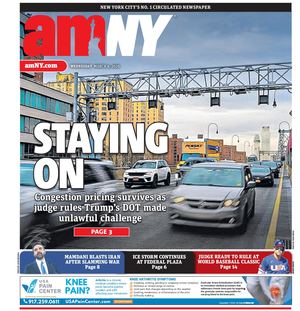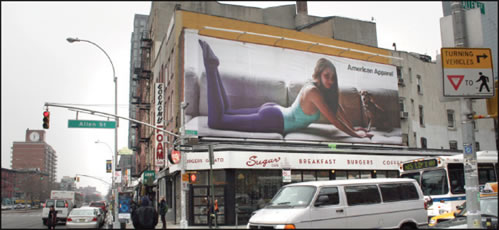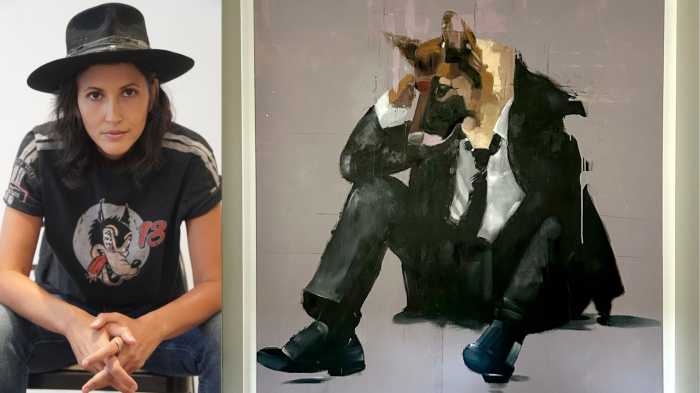by Caroline N. Jackson
American Apparel has always pushed the envelope with its racy ads. And then there have been the accusations of owner Dov Charney’s sexual harassment of employees. But now the maverick company has taken on a more political point of view. With Charney standing trial for the first time, where is the company going from here?
In a recent advertisement in The New York Times, Charney and American Apparel took on immigration reform. The ad advocated for a process for workers who are undocumented to become U.S. citizens and said the current condition in this country “amounts to an apartheid system.”
This political seriousness would seem to be at odds with the tone of American Apparel’s ads, which feature scantily clad, glassy-eyed girls, many of whom Charney has said he personally photographs. But, in fact, Charney has spoken out politically before. His “Legalize LA” ad campaign, an early advocacy effort for immigration reform, kicked off in 2003; one ad featured Charney, his bare butt sticking out from under a shirt, printed with the saying. Also, one of the company’s first mottos was “Sweat Shop Free,” which referred to the high quality of treatment for American Apparel’s workers at its Los Angeles factory.
But many are suggesting that now that the company has gone public and Charney is facing trial on sexual harassment charges, the company will have to distance itself from its sexy image.
CNBC’s Margaret Brennan reported a disturbing incident with the outlandish owner that occurred right after she recently interviewed him. In an article on CNBC’s Web site, Brennan said Charney remained composed during the interview but afterward, used “his now infamous four-letter words,” yelling at her and her producer. Brennan blasted his behavior as “certainly not becoming of a C.E.O.”
When speaking with Brennan on camera, Charney defended the company’s business model and advertising, saying that neither would change with the impending trial.
“I think people will be impressed with the manner in which we run our business,” he said. “I don’t see the risk you are talking about, but we’ll see where it goes.”
Charney avoided the question about the lawsuit, saying he would not comment, but defended the company’s image and said American Apparel was not concerned about whether his trial or the company’s sexualized ads would deter investors.
“I think we have a fantastic ad campaign and I don’t see any problems there,” said Charney. “I think we have a very tight business and we have a lot to offer shareholders.”
The company officially went public in January. The company no longer displays pornographic magazines Oui and Playboy in its stores and some think its imagery appears milder than before.
American Apparel’s billboard ads at E. Houston and Allen Sts. have raised eyebrows and some indignation. But in October 2007 when neighbors complained about an image of a topless girl wearing only tights, her back facing the camera, the company replaced it with a less-eroticized ad. That ad is still up on the Lower East Side billboard.
In his interview with Brennan, Charney wouldn’t admit to any alleged chastening of the company’s image, choosing instead to leave the future of the company’s plans ambiguous.
“I think our actions will speak for themselves,” said Charney, about what will happen going forward. “That’s all I have to say.”
According to an update on CNBC’s Web site, Charney’s attorney won an appeal, and now the case is back in arbitration, where it could be for as long as a year.







































